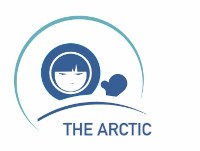Finland remains one of the five Nordic countries in the Arctic region and continues to be a key player in shaping Arctic governance and environmental policy. As one of the founding nations of the Arctic Council, Finland plays a central role in Arctic cooperation, with a strong focus on sustainable development, climate change mitigation, and emerging Arctic marine technologies.
Finland is home to a small but significant indigenous Sámi population, numbering around 10,000. The Sámi people inhabit the northern regions of Finland, known as Sápmi, which spans across parts of Finland, Norway, Sweden, and Russia. Within Finland's Lapland region, the Sámi exercise cultural and linguistic autonomy through the Finnish Sámi Parliament. This parliament continues to advocate for Sámi rights, including land and resource management, as well as the protection and promotion of Sámi languages and traditions.
The Sámi people speak three languages in Finland: Northern Sámi, Skolt Sámi, and Inari Sámi. These languages belong to the Finno-Ugric language family, which also includes Finnish, though each language faces challenges related to preservation and revitalization.
The northern Finnish city of Rovaniemi is situated directly on the Arctic Circle and serves as the main urban hub in Finland’s Arctic region. With a population of around 63,000 people, Rovaniemi covers an expansive area of 8,017.20 km². The city has become a center for Arctic research, with institutions like the University of Lapland and the Arctic Centre, which focus on climate research, Arctic governance, and sustainable development. Rovaniemi continues to be an important crossroads for Arctic stakeholders and a symbol of Finland's commitment to the region’s future.
In recent years, Finland’s Arctic Strategy has evolved. The updated Finnish Arctic Strategy 2025 emphasizes several key areas:
- Environmental sustainability and climate change mitigation,
- Security policy in the Arctic context,
- Economic opportunities, particularly in green technologies, marine industries, and tourism,
- Infrastructure development, including ports, airports, and renewable energy,
- Indigenous peoples' rights and cultural autonomy,
- International governance, including continued leadership in the Arctic Council and cooperation with the European Union, which remains an observer at the Council.
With its strategic location and expertise in technology and research, Finland is well-positioned to continue playing a key role in shaping the future of the Arctic region.








